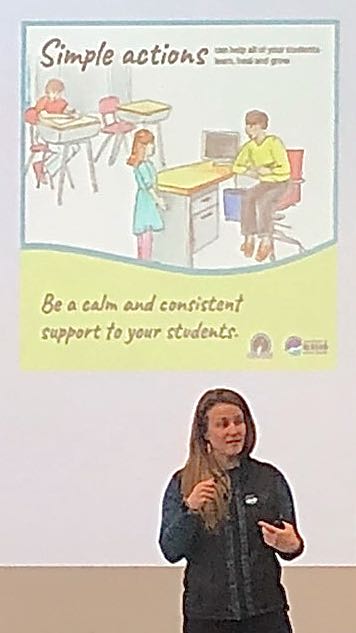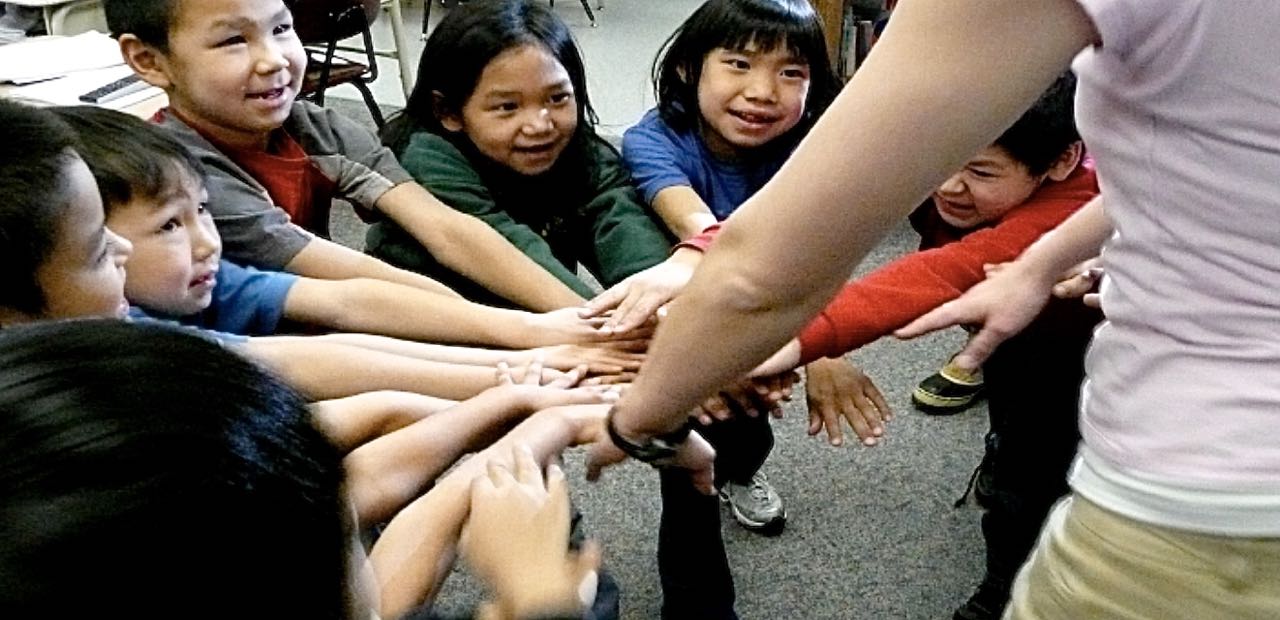
Karin Halpin, Training and Coaching Coordinator
“[We] must either invest a reasonable amount of time attending to fears and feelings or squander an unreasonable amount of time trying to manage ineffective and unproductive behaviors.” – Brene Brown
What does it mean to be a “trauma-engaged” school?
Local wisdom, current research, and educational practice indicate that trauma can impact a student’s ability to focus, connect, and learn. Students who experience individual or collective trauma are less likely to engage in school, have lower academic outcomes, need more behavior support, and are absent from school more often.
Trauma-Engaged practices build on the strengths already present in our students, and build strong relationships with families and communities.
Being trauma-engaged isn’t a program, rather, it is a way of being. Trauma-engaged schools have policies, procedures, and support services that weave in an understanding of trauma. Trauma-engaged approaches to learning and discipline reduce trauma responses and create safe spaces for learning. To be trauma-engaged requires that we create spaces for educators to collaborate and reflect on the impact and consistency of their practices.
To learn more about trauma-engaged schools and to download the Transforming Schools trauma-engaged framework and support resources, check out AASB’s TES web page.
How can you support your district or school to become trauma-engaged?
AASB and DEED are available to provide professional development workshops for school boards, leadership teams, teachers, and paraprofessionals. To request professional development from AASB, please submit this form.
We are also recruiting a few more districts for Project Transform – a grant funded program that can provide 2 years of intensive supports to schools and educators in building a trauma-engaged school. Schools in districts that sign up would participate starting fall 2024 or fall 2026 (by random assignment). For more information on Project Transform, see below. If interested, reach out to Maressa Jensen.
Project Transform: Comprehensive Professional Development to Create Trauma Engaged Schools
AASB received a 5-year US Department of Education Education Innovation and Research (EIR) grant to support schools interested in implementing best practices for creating a trauma engaged school. Participating schools were randomly assigned to one of three two-year implementation cohorts. Project Transform partners DEED and AASB will provide comprehensive training to educators at participating schools in implementing a trauma-engaged school using the Transforming Schools: A framework for trauma-engaged practice in Alaska framework and online toolkit.
Cohort 1, which includes 10 schools across the state, launched this fall with a full day of professional development. The day focused on deconstructing trauma, building relationships, and self/community care. Cohort 2 will begin Fall 2024 and Cohort 3 will begin Fall 2026.
Participating educators have the option to participate in a wide range of professional learning activities throughout the 2 year cohort period, including monthly coaching sessions, professional learning cohorts, asynchronous learning activities, and reflective practice groups. To honor their time for the extra work this will take, educators can earn a stipend upon completion of the activities in May and two credits towards recertification.
Part of this project is to rigorously evaluate the impact of the Project Transform activities on academic achievement, student behavior, and social-emotional skills, compared to schools that have not (yet) implemented Project Transform activities. To do so, schools in participating districts are randomly assigned to one of the 3 implementation cohorts. AASB is working with Education Northwest to conduct the research study, which will look at academic, SCCS, and other data to understand the program’s impact.
We are still looking for additional districts to participate in Project Transform. If your district might be interested, please reach out to Maressa Jensen, Project Transform Coordinator, for more information.
